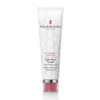
Heart disease remains one of the leading causes of maternal mortality, and death in general, among Black women residing in the United States, according to a 2023 joint statement from the Association of Black Cardiologists, the American College of Cardiology, and the American Heart Association.
This is an unequivocally jarring realization that begs the question, how do we fix it?
Healthcare professionals are essential in addressing the issue of heart health and its impact on maternal mortality rates for Black women in the U.S. It is imperative to highlight a burgeoning class of Black clinicians and Black-owned/operated healthcare services using innovative approaches to reduce barriers to care for Black women. At the forefront of this push are founders and organizations such as Cayaba Care, founded by Mary Fleming, M.D.; Culture Care, co-founded and led by Joy Cooper, M.D.; Navigate Maternity, founded by Ariana McGee; and Health in Her Hue, founded by Ashlee Wisdom.
Cayaba Care is a Philadelphia-based maternity company that prides itself on being more than a typical maternity company. They have cultivated a community dedicated to reversing trends and providing unwavering support to birthing people. Their mission is to bridge the maternal health equity gap. Cayaba Care’s work is meant to uplift Black, Brown, and high-risk individuals in Philadelphia because every mother deserves a journey filled with compassion and comprehensive care.
What makes Cayaba Care unique is its holistic system of care, where support is centered and delivered in the most convenient location (both in-person and virtually), and trusted care is designed with and delivered by members of the community. Patients are connected with a local healthcare navigator who serves as a facilitator to help them create a “village” or team for the duration of their pregnancy and postpartum journey up to one-year post-delivery. Made up of OBGYNs, nurses, doulas, and midwives, these teams are well-rounded, multidisciplinary, and cater to meet the birthing person’s needs. In a recent social media post, Cayaba Care summarized its long-term goals as a maternal healthcare company:
“Cayaba Care aims to address social determinants of health by identifying unmet needs related to maternal care or difficulties accessing social resources to impact our members’ health outcomes positively.”
Similarly, Culture Care, a telehealth-based service company and grantee of the 2023 New Voices + In Full Health Innovators’ Hub at the Essence Festival of Culture, provides telemedicine for Black women by Black physicians aiming to disrupt the healthcare ecosystem and construct spaces that are more approachable. The Innovators’ Hub partnership, which was formed with the support of the American Medical Association’s In Full Health Learning & Action Community to Advance Equitable Health Innovation, offered select innovation companies like Culture Care the tools to showcase their work and educate the public about efforts to address inequities in healthcare for the Black community.
“The healthcare system wasn’t built for Black women. It was built on our bodies.
Let’s hack the system!” –Joy Cooper, MD, CEO-Culture Care
How are they ‘hacking the system’? Culture Care is a virtual care hub for Black women seeking second opinions from Black doctors. This telemedicine startup is using its network of Black physicians and other healthcare professionals to combat health inequities. Founded and headquartered in Oakland, Calif., Culture Care has recently announced that it will be expanding its operations this year to the east coast, including Pennsylvania and New York.
Providing an outlet for patients who previously did not feel seen or heard within their healthcare systems, Culture Care’s adjunctive care is priced to alleviate a barrier to entry for prospective clients as their visits are the cost of a co-pay.
With a mission to “resolve the perinatal morbidity and mortality crisis caused by health disparities through big data analytics, remote monitoring, and proactive care,” Navigate Maternity is a maternal healthcare company that aims to ensure equitable care for birthing people through real-time data. They are achieving this by pairing U.S. Food and Drug Administration (FDA)-approved wearable technology with an intuitive reporting interface. Their device collects key biometric data for at-risk patients and notifies providers of any significant changes, allowing care teams to take a more proactive approach to perinatal care.
Beyond biometric data collection, Navigate Maternity is actively improving patient outcomes through increased touch points by also providing virtual mental health screening, social determinants of health checkpoints, and continued postpartum care and support for up to a year.
Lastly, Health In Her HUE is a digital platform that connects Black women and women of color to culturally competent and sensitive healthcare professionals and offers health information and content that centers their lived experiences. HUE is defined by the company as Heard and Understood Experiences–validating the lived experiences of their audience. They are reducing racial health inequities by leveraging the power of technology, media, and community to improve health outcomes for Black women and women of color.
In a world where most people’s first inclination when facing a health challenge is to Google search or self-diagnose, Health in Her HUE is the first touch point for Black women and women of color to be informed and empowered about their health and healthcare choices. The platform provides a safe space for Black women and women of color to express their concerns, connect with clinicians, and feel validated in their concerns and choices.
These four innovative healthcare companies are helping to create inroads in healthcare for Black women residing in the U.S. Their collective and continued efforts to address inequities in care, especially in regard to Black women’s heart and maternity health, works hand-in-hand with awareness efforts to create meaningful change.
The Release the Pressure (RTP) Campaign is one of these awareness efforts. In response to the stark inequities leading to early death in the Black community, the American Medical Association (AMA)—the nation’s largest professional association of physicians—launched The Release the Pressure (RTP) Campaign in March of 2020 in partnership with a coalition of national healthcare professional organizations and heart health experts with a shared goal of partnering with Black women to support their heart health.
The RTP Campaign engages with Black women to encourage them to take care of their heart health and engage more meaningfully with healthcare professionals. Through national and local partnerships, RTP seeks to address various upstream and downstream factors affecting high blood pressure – from educational awareness to addressing the structural landscape that can affect health such as access to healthcare or heart healthy foods. The overall goal for the RTP local community is to leverage RTP as a local awareness initiative, to help engage Black women in their heart health, and to connect to healthcare. RTP aims to help Black women look at self-care as an act of self-preservation, a way to take back what’s often taken from them. RTP is committed to providing actionable steps to prevent or manage high blood pressure.
At publication, RTP has collected nearly 74,000 pledges, with the goal of collecting 140,000 pledges by the end 2024. Go to this link to take the heart health pledge today.



